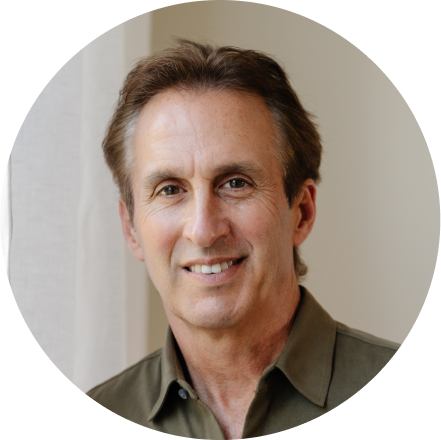Would You Go to Into Medicine If You Could Do it All Over?
By David Weill, M.D.


“Dr. Weill, can I talk to you for a minute?” The young woman asking the question was dressed in standard college student attire: fashionable sweatpants, a long-sleeved T-shirt, and a pair of white leather sneakers that gleamed.
I had just given a reading from my book Exhale that was followed by a Q and A session with the Dean of the Tulane Medical School. The discussion was part of the New Orleans Book Festival, its inaugural event that was postponed twice due to the pandemic and was immediately dubbed by locals as “Mardi Gras for the Mind.”
My session went according to the plan that the Dean and I had hashed out a few minutes before we started. I read a passage from the book that was by now entirely familiar to me and answered questions from the audience that had become just as familiar: “What was the final straw that made you leave the frontlines of medicine?” “How did you cope when your patients died?” “What made you want to write about your experience?” And the standard, “What are you working on next?”
To the last question, I had given a variety of answers during the several months I had been on book tour, a reflection of my uncertainty about what I wanted to work on next. A novel about an arrogant transplant doctor who loses everything, and eventually figures out what is really important in life; a book about my family lineage that can be traced back to 14th century Germany, generations of Rabbis interrupted by my Grandfather who escaped the Nazis in 1939; or, in instances when my thoughts were especially unformed, “something about the state of healthcare in the United States.
But this young woman had something else on her mind after reading my book and hearing the discussion that afternoon, and she came right out and said it. “I don’t know what to do. I’m premed but…” Her voice trailed off as she looked down, her sneakers squeaking as she rocked back and forth. “My parents are both doctors.” Then she looked over my shoulder. The Medical School Dean was not far away, chatting with a local doctor who had attended the event. She lowered her voice. “All I’ve ever wanted to be was a doctor. Since I was a little kid. Both my parents are doctors.” I nodded. It sounded familiar to me; I was the son of a doctor and a nurse. “But now, I just don’t know,” she said, stammering a bit, as if making a confession at church. “The hours. The insurance companies. The pandemic. Burnout…the system.” I nodded, as if she needed to tell me about the current state of American healthcare. I felt like she would have gone on for much longer but by nodding, I was signaling that I got it. Boy, do I get it, I thought to myself.
She stared at me as we stood there in silence. Should she go into medicine? I asked myself as she waited for my answer. Should anyone?
Just then, my 3 decade experience in medicine flashed through my mind—the patients who couldn’t get the care they needed, the lack of accountability of the system, the inequities, the lumbering bureaucracy that I endured for years, a career littered with frustrations but also interspersed with magical moments of healing, lives saved, families made whole again. But were those moments enough, sufficient reason to tell this young premed student, without equivocation, that, Yes, you should pursue your dreams, have a medical career, flaws and all?
I paused for a moment, sighed, and then began to speak. “Want to grab a cup of coffee?”
***
I published a book called Exhale in May of 2021 about the roller coaster ride that was my life as the head of the transplant program at Stanford—the patients who were miraculously saved as well as the devastating losses of people who died too young. I wrote about the emotional toll my career took on me, what it felt like to do this kind of work, and what my patients had to endure in order to survive. I told stories of their experience—and mine, when I discovered that the practice of this type of medicine had left me a shell of my former self.
I also gave a behind the scenes look at how high stakes healthcare really worked—the bureaucracy, the corporatization of our system, the frustrations that happen when the reason many of us chose to go into medicine was obscured by the stark reality of its practice in America today. When I wrote the book, I thought I really knew what the modern American healthcare experience was like, that is, until I began to promote my book across the country, interacting in a profoundly personal way with both healthcare providers and patients who gave me a postgraduate education about not only what the healthcare workforce was experiencing but also the effect our healthcare delivery was having on patients.
Over the course of a year, I gave over 70 talks across the country, at some of our finest hospitals, to some of our brightest practitioners. The audiences were comprised not only of doctors but also of nurses, physician assistants, pharmacists, respiratory therapists—really anyone that worked in the hospital environment. And yes, there were often hospital administrators in the audience as well, folks that were managing (or trying to manage) the unruly American healthcare behemoth. These were people responsible for both patients and the bottom line. What I witnessed was that the managers, most of whom were decent people, I assumed, but were the subject of considerable scorn, often called out as “the problem” before my very eyes as I took questions from clinicians in the audience, the front-facing practitioners who were weathering the most stressful time in medical history. The problems these healthcare providers were encountering weren’t new but only more evident.
But even more, the clinicians that I heard from weren’t burnt out, as they have been so commonly described, instead burning mad at a system that was failing them and their patients.
So as I spoke, at times through a video feed and at other times in front of a live audience, I began to realize that, when I wrote Exhale, I had only a myopic view of the tribulations of the American healthcare experience—from the perspective of both those delivering the care and those receiving it—essentially an elementary school understanding of the problem.
I had said through my words on the page and at the podium that something was wrong with American medicine and the answer from the healthcare providers, was, in essence, We agree with what you wrote, we relate, but you didn’t even say the half of it. Now though, after having taken the temperature of a fairly representative cross-section of the healthcare work force, the feedback has rolled in fast and furious. I had opened up the conversation by exposing my own experience and now the healthcare community wanted to talk.
And talk. And talk.
But it wasn’t just healthcare workers who were expressing their opinion. It was patients, too. I spoke to a number of patient groups who were also frustrated, disillusioned with a system that wasn’t working for them either. But it wasn’t only frustration that I heard from providers and patients. It was sadness, because the miracle of medicine—the reason the field had attracted so many of us to dedicate our lives to it and others to receive care in this country—was being obscured by an overwhelming feeling of disappointment in a system that had lost its way.
So that’s what I heard over the course of 18 months interacting with patients and providers, the conversations leading me to dig deeper, to reflect not only what others in the arena felt and thought but also what I had experienced over a 30 year career. These ruminations led me to two central questions: how did we get to a point where American medicine had become stripped of its soul—what were the factors involved—and, even more importantly, how do we get it back?
And my journey began.

One Comment on Would You Go to Into Medicine If You Could Do it All Over?
What a great read. Thank you so much, sending it to the young people I know who are thinking about pre med!